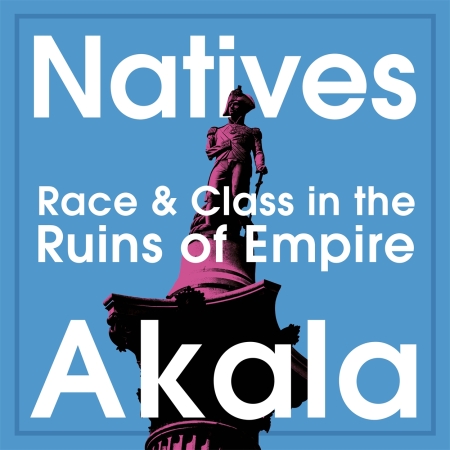 If you want to explore the idea of meritocracy and engage with a provocative discussion on the success of the British Empire, you will certainly discover some novel insights from Akala’s debut book Natives.
If you want to explore the idea of meritocracy and engage with a provocative discussion on the success of the British Empire, you will certainly discover some novel insights from Akala’s debut book Natives.
Akala is a well-known figure in the UK, as hip-pop artist, social entrepreneur and public speaker. He is an outspoken critic on (the growing) inequality in the UK, focusing on class and race. In this book he shows what it was like to grow up in Camden as a poor, mixed raced kid in the 1980s. He shows how being in the wrong place at the wrong time is the most important factor determining the outcome for black Britons.
In this well-researched book, Akala explores how the exceptional achievements of black people do not provide evidence that the perceived obstacles of poverty and race can be overcome by all. Additionally, he goes further and shines a light on narratives ranging from disturbing truths about history and contemporary politics, accompanied by auto-biographical passages.
However, it was Akala’s lived experience told clearly and graphically that kept me reeling as I read. I was shocked by the how the school system treated Akala, putting him in a lower class with the assumption that black people are less intelligent. They even disputed that he had read certain books and he would be constantly overlooked when trying to answer questions in class.
On aspects of history, Akala challenges some of the notions that underpin British history. For example, Akala argues against ”William Wilberforce as the ‘white saviour’ who freed his black ancestors from slavery”, and “Britain being the first country to abolish slavery”. This book is not just about race. Akala also writes “class affects everything, even racism”. The main message of the book is how race and class are constructed categories benefiting the ruling elite, and that this is something that needs attention not only in Great Britain, but in other European countries as well.
Natives is an eye-opening read and a book that will forever change the way that you look at British history – it will move, anger, and inspire in equal measures.
Nim Mahamalimage, Nim is a Science and Engineering Fast streamer in the Defence Science and Technology, Ministry of Defence.
Thank you to Nim for taking time to write this blog. Equality and inspiration are important for all our young people in school and beyond. It is important for us to work together to inspire the next generation to consider broader career options to increase inclusion and the diversity in our profession. The ethnic minority working group as part of the Diversity Inclusion Action Group hopes to strengthen the diversity in the Government Science Engineering profession. Equity should be something we all strive to improve in all that we do. If you are keen to help inspire the next generation into science and engineering, get involved! Educational outreach programmes and events are a great way to communicate the breadth of roles we undertake in GSE and role model and inspire the scientists and engineers of the future.
Rameya, Chair of the DIAG Ethnic Minorities group
The GSE Board is committed to improving diversity and inclusion in Government Science and Engineering.
“Taken from the Go-Science 'case for change': "Our ambition is to make diversity and inclusion integral to everything we do in GO-Science. We will draw on the widest range of talent, expertise and experiences to inform our work and deliver our objectives, uncovering and addressing our biases and gaps in understanding, and ensuring the evidence we choose to review reflects the full breadth of the population. We will use our influence to promote diversity and inclusion in UK science and engineering through our work both inside and outside government.”
Chris Pook, Deputy Director in the Government Office for Science
Sign up to the GSE blog to receive an email when a new blog is published and keep up to date with the work of the GSE profession.







